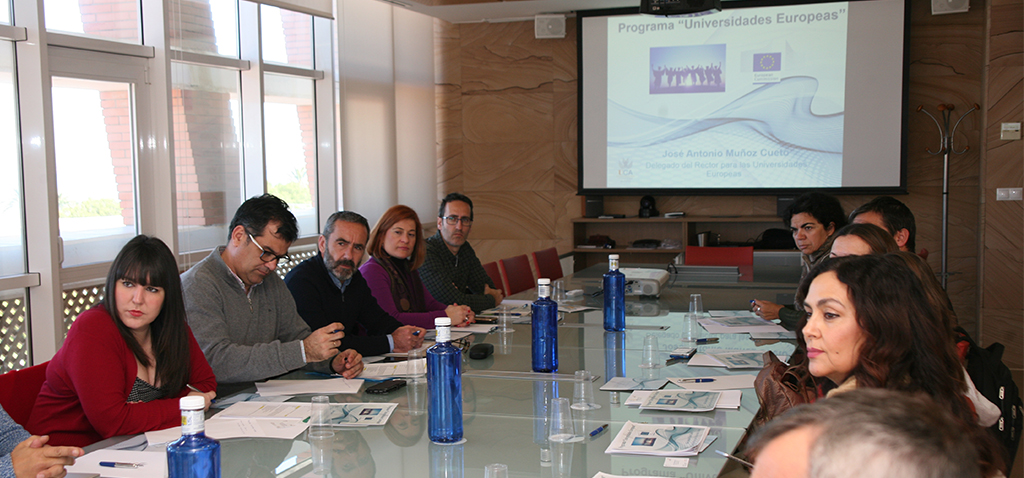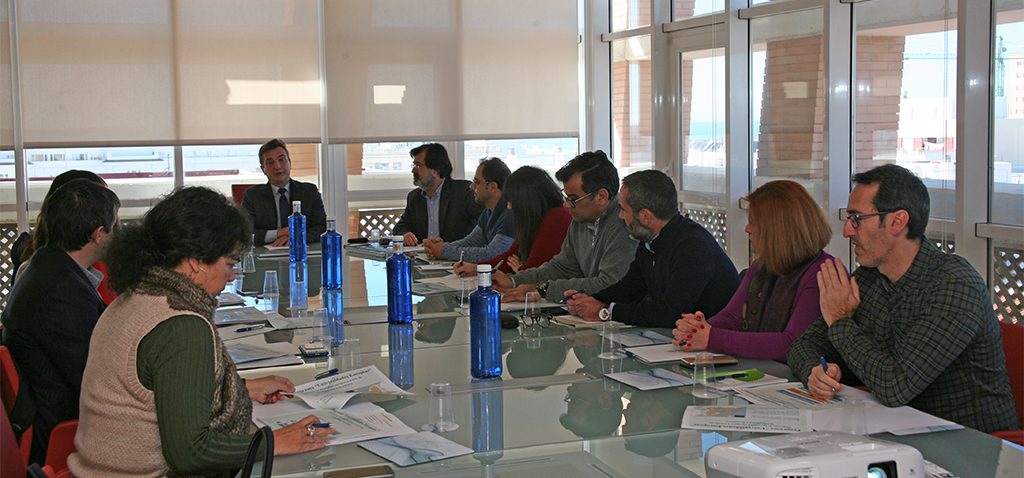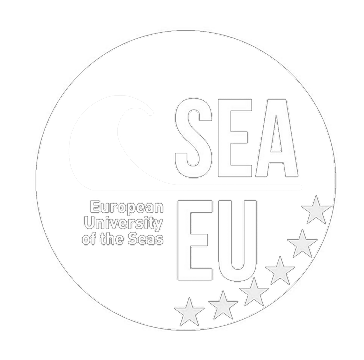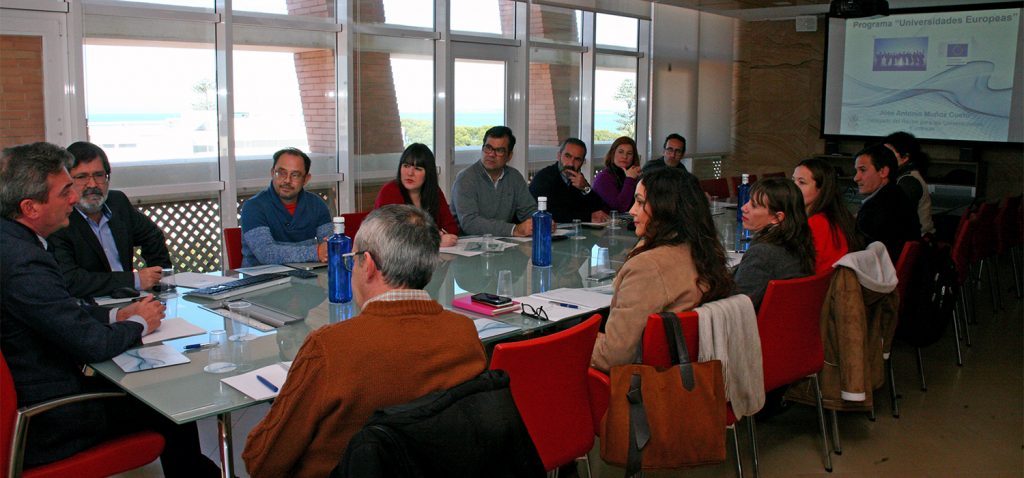UCA presents the proposal of the European University of the Seas (SEA-EU) to institutions and companies 7 February 2019
Representatives of the administrations and the public sector of the province have met the candidature of the consortium, led by the University of Cádiz, together with the universities of Western Brittany, Kiel, Gdańsk, Split and Malta
The rector of the University of Cádiz, Eduardo González Mazo, in company of the Rector’s Delegate for European Universities, José Antonio Muñoz Cueto, the General Director of International Relations of the University of Cádiz, Juan Carlos García Galindo, and the General Coordinator of the Campus of International Excellence of the Sea (CEI · Mar), Juan José Vergara, chaired the presentation of the proposal of candidature of the European University of the Seas (SEA-EU) to institutions and public companies of Cádiz. Representatives of administrations and public companies of the province, municipalities of Cádiz, Jerez and Puerto Real, Provincial Council, “IDEA” Agency of the Andalucía Council, Port Authority “Bay of Algeciras” and Technology Campus Foundation “Bay of Algeciras”, have known the project coordinated by the University of Cádiz together with the universities of Western Brittany (France), Kiel (Germany), Gdańsk (Poland), Split (Croatia) and Malta.
The European University of the Seas (SEA-EU) integrates universities located in cities with a long historical, cultural and economic tradition around the sea, and embraces all European marine basins within its geographic scope. It is part of the European Universities initiative of Erasmus +, a highly competitive call, which is expected to have for the period 2025-2030 about 20 European Universities, each of which will be made up of 5 to 8 European institutions of Higher Education . This action will give financial support to its participants to go beyond the existing models of cooperation in Higher Education, with the ambitious mission of generating European Campuses. It is a shared, integrated and long-term strategy to achieve the improvement of education.

This program proposes an increase in international mobility, which is presented as a key element that structures the proposal, to facilitate an integrated and transnational training. The European Universities will suppose “a radical shift in Higher Education model” and will imply new structure and governance guide, as well as a substantial change in the quality, efficiency, ability to attract talent and international competitiveness of the European institutions, to contribute to the economy, employment, culture and well-being of European society.
UCA work team is coordinated by the Rector’s delegate for European Universities, José Antonio Muñoz Cueto, and it is composed by the General Director of International Relations, Juan Carlos García Galindo, the General Coordinator of the Campus of International Excellence of the Sea CEI · MAR, Juan José Vergara, the director of the EIDEMAR Doctoral School, Fidel Echevarría, the Rector’s for Strategic Development, Pepa Muñoz Cueto, the International Relations Office technician, Javier Izquierdo and the 2nd Strategic Plan commissioner, Antonio Javier González Rueda.

- Six european institutions join knowledge and resources around the sea
The main objectives of the European University of the Seas are to develop an academic, innovative and entrepreneurial quality environment, which promotes excellence in education, training and research in its specialization strategic areas, with the ultimate goal of transferring all this knowledge and enthusiasm to society. For that purpose, this new alliance aims to merge the ambitions of its partners, 6 leading institutions in higher education and research in the marine-maritime field, with the interests of research centers, national and international economic agents and with local and regional institutions that develop their activities and work around the sea. This joint commitment to excellence in teaching and research, will undoubtedly strengthen the leadership of this European University and contribute to sustainable economic development, the blue growth of the territories where it is located.
SEA-EU is presented as a focus in Europe for creativity, innovation, talent attraction and knowledge generation about marine environment, marine resources and sustainable management of the seas. These synergies will position it as an international benchmark for other universities in Europe and beyond in marine and maritime knowledge, as well as for public agencies, to which it will provide guidance and advice in the construction of sustainable management models, capable of combining the economic and social development with the preservation of natural resources and the environment. The European University of the Seas is also committed to a model of social, institutional and territorial integration, which places value on the natural, historical and cultural heritage of the sea and the importance of the seas and oceans in the construction of European identity.
This ambitious project will require to endow this consortium with a common, dynamic and flexible governance that allows, in the long term, to extend these teaching and research collaborations to other disciplines, allowing the culmination with an alliance of universities.


